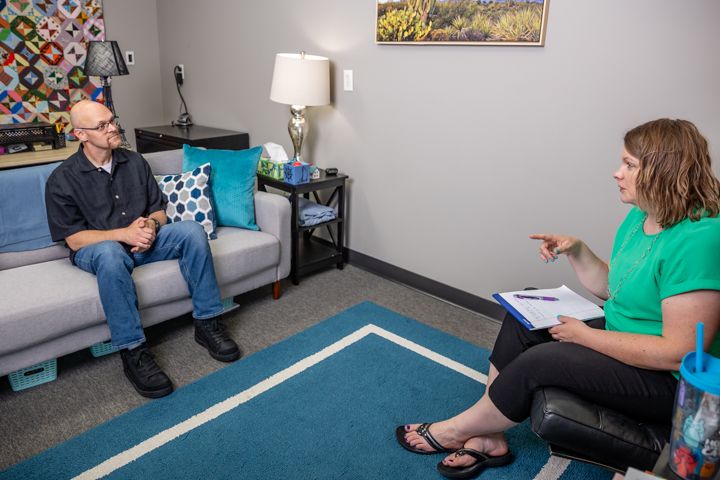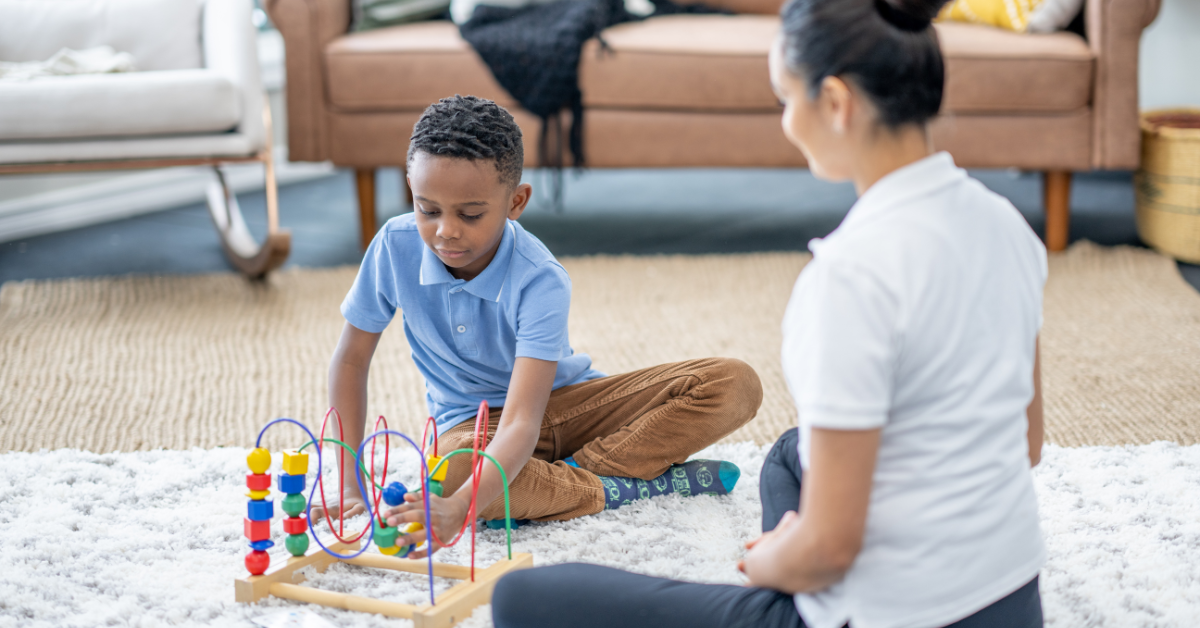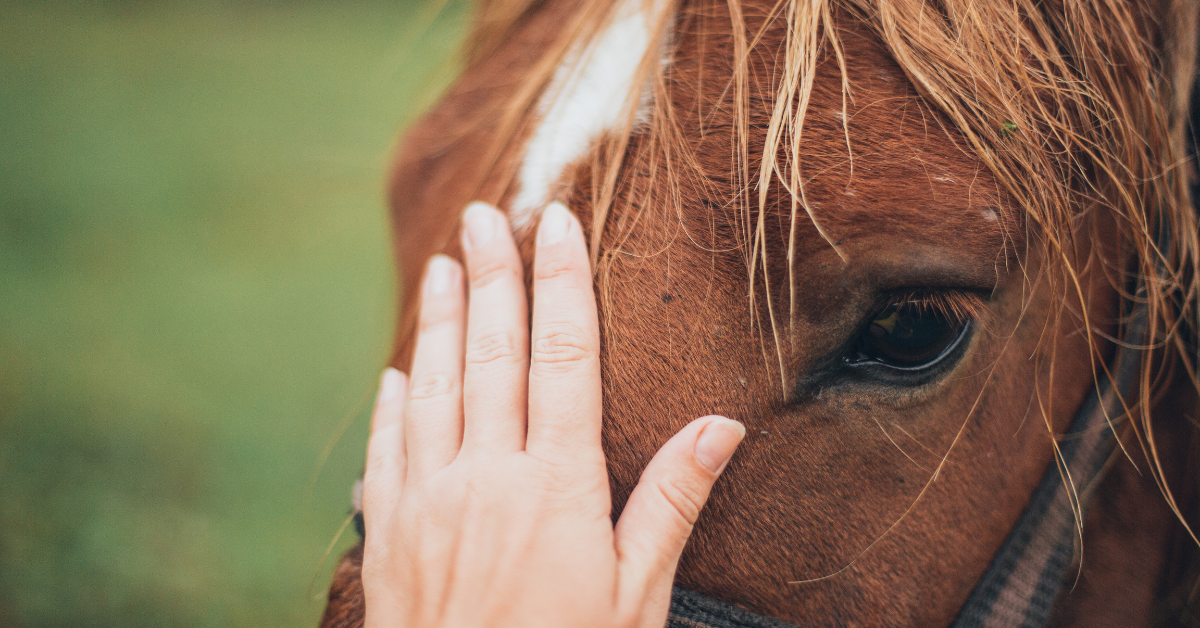33. What is it Like to be a Counselor? Steve Interviews Carrie
This episode is for those who are curious about what it’s truly like to be a therapist. People wonder things like, how can you listen to so many people’s problems?
Today’s show is also unique because my husband Steve took over my role for a day as a host and prepared the set of questions himself. It’s always fun and exciting to have him both on the show and in my life.
Episode Highlights:
- What is it about therapy that I enjoy most?
- My life as a therapist and scope of work
- Difference between private practice and working in a community mental health setting
- How I get through my busy day feeling good
- Balancing my analytical side and creative side
- How I feel when I get to the end of the whole process with my clients.
- My goal for my clients
- Our most recent personal story of hope
Episode Summary:
Today’s episode is extra special as I’m joined by my husband, Steve, who’s stepping in to help me answer some insightful questions about my work and the role of a therapist.
We all know life can be tough, and sometimes, we don’t recognize when we need help. As a therapist, I work with clients struggling with anxiety, OCD, and the effects of childhood trauma. One of the things I love most about my work is witnessing the transformation in people’s lives. I see them come in feeling hopeless, unsure, and overwhelmed, but as we work together, I get to witness their breakthroughs. Whether it’s recognizing an OCD thought for what it is or managing anxiety in a triggering situation, those moments of progress light me up and remind me why I do what I do.
I’m a Christian therapist who specializes in helping people overcome anxiety and OCD caused by past wounds. Through online therapy, I guide clients from the comfort of their own homes toward healing. My work focuses on action-based strategies rather than insight-based therapy, helping clients take real steps to transform their lives.
One question Steve raised was how I handle the emotional weight of hearing so many challenging stories throughout the day. It’s not always easy to absorb everything my clients share, but I’ve learned to maintain boundaries and take breaks—whether it’s a moment to stretch, grab a drink of water, or reset my mindset. I’ve also come to realize that while I’m there to help my clients, I’m not responsible for fixing their problems. I walk alongside them, offering guidance, but ultimately, healing is their journey.
As for recognizing when it’s time to seek help, I encourage people to pay attention to how they’re feeling. If you’re constantly aggravated, withdrawing from others, or treating loved ones poorly, these may be signs that it’s time to reach out for support. It’s easy to overlook these signs, but taking action before things spiral out of control can make a world of difference.
If you’re struggling and not sure where to start, I’m here to help guide you. Don’t wait until things get unbearable—reach out, and let’s work together to create positive change in your life.
I hope this episode helps you better understand my approach to therapy.
Transcript
This is your host, Carrie Bock. And in case you’re new to the show, we’re all about reducing shame, increasing hope, and developing healthier connections with God and others. Today is a very special show as I am joined by my husband, Steve Bock, he is saving my bacon because we had an episode that I was going to come out and the recording just didn’t come out very good. And I didn’t feel comfortable putting it out there into the world for you guys to listen to. So he decided to come up with some questions that our listeners might be interested in related to being a therapist.
Carrie: Welcome back, Steve.
Steve: I’m happy to be here. You did not ask me to be here, which makes it different this time. I had suggested it because as with anything we get in a pinch sometimes. As your husband, I have an obligation to try to help where I can. So I suggested, well, why don’t you just let me ask you a bunch of questions and see how it goes.
Carrie: You’re very helpful as always.
Steve : You’re all too kind.
Carrie: So what’s up? I haven’t seen these questions ahead of time. So what do you have for me?
Steve: Okay, well, Carrie, today is your day to be on the couch. As a therapist, you have people on the couch, right? And you talk to them and they just opened up to you.
Carrie: Now they’re on their own couch online
Steve: Now they’re on their couch online and they get to be in the comfort of their own home or their own car. Today, you’re on the couch. The questions are for you. I’m not per se trying to help you in that sense. I’m no therapist. God knows I’m not a therapist. So Carrie, what is it about therapy and helping people being their therapist? What is it that you like about that?
Carrie: Wow. The biggest thing for me is just the life transformation that I get to see in people like watching them come in. A lot of times, pretty hopeless. I feel like I’m at the end of my rope and everything I’ve tried. I just haven’t gotten better. I’ve done maybe some self-help or talk to some friends, or maybe just try to do everything internally themselves. And then they get to this pivotal point where they reach out for help to someone. And as you get to know people week after week, after seeing them on a regular basis, there’s just an element where you’re care and concern for someone that you have in the beginning. It grows obviously over time, the more time that you spend with people. I want to see my clients succeed, I want to see them do well. And so when they come in after working with me for some time and they have a smile on their face and they haven’t been smiling in a long time or they say, “Hey, I had a win this week. This is what happened. I was able to have an OCD thought come in. And I knew it was OCD this time.” And I just was like, “okay, I’m going to let that thought pass” or they come in and say, yeah, that situation that normally would have really triggered me and made me anxious. It didn’t make me as anxious this week. I was able to kind of catch my breath and breathe through it. So it’s all these little opportunities to see people, really change the directory of their lives.
And I know it’s not just for their lives, it’s for their kids’ lives. It’s for their marriages that are being changed. And that just lights me up and makes me want to go to work every day.
Steve: Okay, well, for those who maybe haven’t listened much to you, or like me. They’ve heard it, but haven’t really listened. What is it that you do? Do you just give everybody therapy?
Carrie: I definitely don’t give everybody therapy. That would be out of my scope of practice. And it’s funny because I used to get calls all the time for marriage counseling. I think because I was a Christian and I would have to tell people I don’t do marriage counseling at all. In fact, I haven’t done marriage counseling since I was in my practicum in graduate school. And I’m pretty sure those couples are not together anymore. I would not be a good person to do marriage counseling. I also don’t work with addictions or anybody that has a severe anorexia or something of that nature I don’t work with
My tagline that I tell people is that I am a Christian therapist who helps people with anxiety and OCD overcome wounding childhood experiences in order to live more full lives. And I do that now in the comfort of their own homes via online therapy.
Steve: As Carrie Bock, you wake up and I know this pretty early in the morning. You’re not a lazy person. You get up, you put a lot of preparation into what you do. You have a plan, you have ideas. You don’t share those with me because in your world, you can’t. So you keep that all mustered up inside somewhat.
The first person that you meet with comes along and something’s already probably gone wrong. Somebody at the front door knocking on the door while you’re trying to be in session or a cat walks in or out or whatever the case is you deal with that, not a big deal. You handle that. Things go on all throughout the day though that are out of your control and you have to somehow keep enough sense about you to help someone. And you do very, very well at it I think.
The first session goes by and you’ve absorbed everything that that individual has said. Now you’re going to session two, the same thing. Session three, session four. Maybe you get a lunch. I don’t know. Maybe you’ve just scarfed down lunch, you’ve tipped your food in your mouth, and now you’re running back to go meet with someone, how do you not go nuts like how do you take all of that in absorb it all and then calmly say, and how does that make you feel because I’ve got that in my head and I bet that you never say that.
Carrie: No, therapists don’t just have one line that they say that’s so annoying. Wow. So how do I get through the day to day seen multiple people with multiple problems and hearing all their stories?
That’s a really good question. Well, first thing I will say about the lunch. I’m not a person that scarves down food and runs back to work. For me, my lunch is more of a time. A lot of times now that I’m home, I get to go in and I’ll cook a little something. It doesn’t have to be anything major, but lunch is kind of my downtime, my relax time, where I can clear my head a little bit or shift gears and think about something different.
As far as seeing one person and the next, sometimes sessions can be really heavy like you’re talking about some pretty traumatic things or the person was very emotional and that can be hard. I think, to transition and shift gears, for me, it can look like a lot of different ways. It can look like maybe getting up in between sessions and stretching. Sometimes it’s just going to get a drink of water. Obviously, I have to go to the bathroom throughout the day. You know, those types of things that I do in between session to kind of help reset. One of the things that has helped me probably the most is that therapists that I realized a long time ago was that these are not my problems.
There are other people’s problems because I was such an empathetic person that I would take on other people’s problems as my own. And even when I was in the early days of working in community mental health. Essentially, I felt like the message was you’ve got to fix these people. You’ve got to make them better like whatever you have to do to do that. You have to bend over backwards. I really got burned out in that job. And I didn’t even realize that I was burnt out. I didn’t have the self-awareness to know that. Through that process though of going to my own therapy, I realized I have to take a step back and take the wide-angle view really to say at the end of the day, these people are living with these problems on a day-to-day basis and I’m here to help them. I’m here to support them, but I’m not here to fix them and I’m not here to fix their problems. I’m here to be kind of the guide and the person that walks alongside them and shows them potential different paths that they can take, but I can never make anyone do anything.
There’s something really freeing about recognizing that, that everything is optional. People want to dive in and do the work then I’m happy to help them do that. If they’re not ready to do that, that’s okay. And I can be patient and wait with them until they are ready to dive into some things. I think for me because my therapy is less of insight-based and more action-based that the people who aren’t quite ready to take action, they either don’t tend to see me or they tend to drop out one of the two, but I hope that answers the question.
Steve: Yeah, it does. And that leads me to another question actually. We all need help from time to time, right? You’re around me enough, you know that I tend to store things in. I’m not going to tell, I’ll tell y’all complained to you all day, but I’m not going to tell people my problems. I’m not good at that, right? There are people who I am sure have a problem, and they don’t recognize it. There’s an outcome of it. They’re aggravated and they don’t know why or they’re doing something to themselves that they shouldn’t or saying things they shouldn’t or treating a spouse or a family member, whatever, in a bad way or whatever it may be. But what do you tell them to notice those types of things? Like at what point should a person notice that? If that makes sense.
Carrie: Are you talking about how do people become self-aware enough to realize that they need therapy?
Steve: Yes.
Carrie: Okay.
Steve: See? You put it so much better than I did. I say it in like 5,000 words, you say it in like 10 or less, but yes.
Carrie: Well, we always look at the different domains of a person’s life. And I think that you just named some of those off. So when you’re looking at what are your relationships look like, are you satisfied in your relationship with your spouse or significant other? What is your work like? Are you getting in trouble at work because you can’t get along with your coworkers and then the other would be maybe school. If the person is in school, a lot of times when kids are failing, it’s not just because they don’t understand the subject matter. Sometimes they have emotional things going on or mental health struggles that they’re dealing with.
So we look at those kinds of different domains of life. What’s someone’s functional level at home? Are they just laying in the bed all day, depressed on a Saturday and really all they can do is go to work and go home. That might be an indication that someone needs therapy. Usually, people seek help when one of those domains is impacted in some way, shape or form like, okay my anxiety is at the point where it’s affecting my ability to drive to and from work because I’m afraid of driving on the interstate or my OCD is impacting my relationship with my spouse because I’m having all of these obsessions about my spouse. And then I’m seeking reassurance from them. Just some couple of examples there
Steve: On a similar question, what advice would you give someone if they had a family member or a friend. Of course, we all think the other person needs help and not us, Sometimes you see people and you’re like, man, they really need some help, honestly.
And not in a mean or a cruel way like, “oh dear. Oh my, go get some help.” You’re not trying to be mean, but they really do need help. What advice do you give somebody? Because that type of a thing is usually, I would think you bring up that topic and they are going to let you have it. I don’t have a problem. Who do you think you are? And that it’s one of those things that probably could split a family or a marriage or whatever up. What advice do you give somebody to reach out to their friend or their family member and say Hey, you need help?
Carrie: If you know what the barrier is I think that it’s a little bit easier. For example, if someone’s saying, well, I don’t have time to go to therapy, then you might present them with some different options. There are therapists that keep all different kinds of hours. Well, maybe we can find you someone, that works on the weekends. Maybe we can find you someone that works late into the evening.
If it’s a financial barrier, trying to figure out, okay, well, are there some things that we could look into, some lower costs, sliding scale university counseling center, EAP program through your work. Okay. Let’s try to remove that barrier to therapy. if it’s a matter of ”I’m not really that bad.”
I think that’s probably the thing that keeps most people out of therapy is like, “well, yeah, I’ve got some obsessions, but there’s that person over here that I’m comparing myself to and they really can’t function. They’re washing their hands 20 times a day. I’m just over here, ruminating about stuff, staring off into space.”
It’s not really affecting me as bad. It’s not really great to compare us to other people. It gets us in all kinds of trouble in a variety of ways. But I think that’s probably the biggest thing that keeps us out of therapy is pride because it takes a certain level of humility to say, “I really might benefit from getting out of my own head and talking with someone and maybe I do need some help.”
It’s hard for people to admit. I think if that’s your family member, really my first step would be a spiritual one would be to pray about it and to say, okay, God, I believe that this person really could benefit from help and will you please soften their heart so that when this opportunity prevent presented itself then they might be more open.
One of the nice things about having the podcast is it’s really been a bridge for some people to seek out therapy. I’ve had emails from various people saying, “Hey, I heard your podcast. And this was what I realized about myself. I was listening to someone else’s story. Then I realized, Hey, that’s me. I have some of those same thought processes in my head or I’m going through some of those same struggles with anxiety.” They hear a story about how someone else sought out help and hey, this person sounds pretty normal. They sound okay. And I consider myself pretty normal. And Hey, this therapist, lady, she doesn’t sound awful or weird or kooky. Maybe I could go seek help.
So really that’s one of my prayers, I think, for the podcast and one of the beautiful things that’s come out of it, as people are writing and saying, you know, Hey, I am going to go to therapy after listening.
Steve: That’s actually helpful. And I think a lot of your listeners would probably think that very same thing because I think we all have people in our lives that we come across. And maybe even ourselves. Maybe we were thinking of someone and it turns out, “oh, maybe I need some help.” So that’s good.
I’ll ask you this. What is something that an individual should do prior to getting therapy they’re looking for that therapist. And do they call just any therapists? Do they start by calling the therapist first? What do they do?
Carrie: Yes. Thank you for asking me this question.
Steve: I knew that one. That was actually the first question I wanted to ask you.
Carrie: This is something that Steve has to hear me vent about a lot because people often do not do their research before they just start kind of calling willy nilly. The closest person to them that they can google. We have an entire episode actually on this, and I can’t remember the number, but it’s how to find the therapist who’s right for you. I also wrote an ebook about this topic that you can find in the store on finding a therapist who’s the right fit for you on the first try.
I’ll give a couple of key points you need to kind of think through what is it that you’re looking for in terms of what you’re looking for from a therapist, as well as how are you going to pay for therapy over time. Is it something that you are trying to get your insurance to pay for? Can you afford to pay out of pocket?
What’s your monthly budget? All of those factors really need to be taken into consideration before you start calling people. Please, please, please use the internet. It’s a beautiful tool out there. Do your web searches find out as much information as you can online. If you need certain requests such as scheduling, insurance
You know, you’re going to have to ask your boss to leave early at the end of the day. You know, get some of those things in place and so forth. Know what your therapist that you’re looking at specializes in. That’s a big one. I just talked about people seeking me out for marriage counseling and there was nothing on my website or anywhere in anything that said anything about marriage. So like I said, a lot of times people just start calling numbers and honestly that’s going to lead you to more frustration in the long run if you don’t do your research. Use websites, get as much information as you can from there and then start calling or email.
Steve: Fair enough. And for the record, I probably sit on the wrong side of that. I have this wonderful wife who is very good in helping me find doctors and find what our insurance covers and what it does not. And I am very, very thankful for that. And my advice to you, if you were the one sitting there like me and saying, “oh my gosh, I’m terrible at that. I am all the bad things that she just named.” Get help from your spouse, your friend, somebody cause it’s worth it. So thank you for helping me on that.
Carrie: And I try to be patient and remind myself that people are in crisis. And when people are in crisis, they don’t retain information very well, but they read, or they don’t always make the best decisions.
Steve: Sure. So let’s get back to you. We talked earlier about your day to day, when you get up and you, you plan and oh my gosh, 15 things have already gone wrong in my day. Then you do all this therapy throughout the day, then you’re finished. You have to put up with this husband of yours who comes home and says, “oh my goodness, let me tell you about my dandy day.”
And not that I want to complain about things, but we all do. And then you say, well, all right, let’s eat dinner, let’s talk. And then you have work to do, or you have an idea or you have to, whatever it is because we’re busy. Our lives are busy. Where do you get your go? I don’t know. Another way to put that. Where do you get your energy to continue?
Carrie: Exercise is a big one for me. I really try to exercise three times a week and you know that because you live with me and you see me do it. And I have streaming workouts that I do sometimes we’ll take walks as well, and that’s always good. The walks for clearing my head. If I’m with you, I’ll talk to you about different ideas that I have for the podcast or things that I want to do business-wise. And then if I’m by myself, I’m usually either decompressing or I’m praying about situations in my life that are going on. And it’s just been a really great release for me. That gives me energy. I try to eat decently. I am definitely not perfect in that area, but I tried to make sure that I have time for myself to do things that I enjoy lately. That’s just been paint by number here and there when I have the time, we’re obviously doing some house redecorating right now. So that’s taking up both of our times. It’s been a lot of work.
Steve: You do stay busy. There’s no doubt about that. We both do, but you definitely stay busy and there are days I wonder, how is this woman still standing up? Because as you said, you do all those things and yes, you exercise and yes, you know, there are a lot of paint by number, which I think is actually really cool that you do that.
I don’t think I could do that for multiple reasons, but I appreciate that you’re able to do it and it seemingly takes away the stress a little bit. Do you feel that that does help a lot doing things like a hobby like that?
Carrie: I think so. One thing I’ll tell you when I used to do community mental health work and just to give people an idea, I talked about this on a previous episode on the EMDR episode, but we were literally going into situations where we had no idea what we were going to find. I mean, we were going out to people’s houses. So someone could have just gotten in an argument before you walked in the door and you’re experiencing the fallout of that. You show up and the kids you’re working with just got suspended from school for a week for bringing something to school they weren’t supposed to. Just endless amount of stress and nothing was predictable. I would bake a lot during that period. What I realized was that I was baking because I knew that if I followed all the steps, I knew exactly what result I was going to get. And that was therapeutic for me at that time to do that. I realized that was why I was doing it.
And now something I’ve realized about myself is that having some type of creative outlet for me is helpful because I’m so analytical and so consumed with problem solving and thoughts and things of that nature that to shift gears over and to do something that’s more creative and fun and spontaneous is a good balance for me to balance out the analytical side and the creative side, which has been a great thing. I went through a season of rock painting a little bit before the pandemic and a little bit while we were dating, I’ve kind of gotten away from that and now, but that was fun. I like arts and crafts a lot. So I tend to do some type of artsy thing.
Steve: Yeah. It’s fun to watch. I think you do well with it. So let’s go back. Let’s talk for a moment. Young Carrie, let’s go back, At what point did you make that decision of Hey, I think I’ll be a therapist? That seems like a dandy idea for life. Let me try to help other individuals with their problem. When did you decide that? Why did you decide that?
Carrie: When I was in high school, I was super interested in sign language and there was a college. It was actually a junior college at the time near where I grew up that had a sign language interpretation program. I had been to a church in the area that had a sign language interpreter. That was my bent of where I thought I would be going with my life. And it was a two-year program I could get out and do interpretation. Then I was in a psychology class in high school. And I thought this is the most interesting stuff that I’ve ever read in my life. I just wanted to digest all of it and read everything I could get ahold of. I’d get a hold of old psychology textbooks and just read them. I knew that there was something to that. So when I went to college to study psychology, my professors were either involved in research or they were counselors. I didn’t like research. I thought I could do counseling. And so it wasn’t this big aha moment or calling.
I think like with so many times in our lives, God uses the little pieces and puts them all together. And then later we look back and go, oh yeah, God was really in all of those little situations that I didn’t realize he kind of steering me on this path.
When I remember that when I saw my first client in practicum. So we had one semester. And then our second semester, we were already doing therapy. That was terrifying. I didn’t know anything at that point. However, when I got done with that first session, there was just this feeling that came over me of like this is why I’m here, like this is what I’m supposed to be doing with my life. This is why I’m alive. That moment for me just solidified everything that I was doing. And That’s how I became a therapist. I couldn’t imagine really doing anything else.
Steve: Do you remember your first case, your first person?
Carrie: I do.
Steve: And how was that? Were you like terrified and don’t let them know you’re terrified, but were you like scared?
Carrie: I’m so appreciative of this woman. She was very gracious to me. And I think that she got something out of it, even though I didn’t feel like I was able to give her a whole lot. And I think it was more just about her showing up, saying some things out loud to someone that she didn’t talk about to other people. Receiving some type of supportive feedback and just having a safe environment that she was able to go on and do different things in her life. I guess is the best way to explain it. And it was also where I learned that couples counseling wasn’t for me, that wasn’t with her. I was seeing her individually, but I saw a couples and I was like “I don’t really feel comfortable with this. This doesn’t seem like my cup of tea.” So I stayed away from that.
Steve: Wow. And then from there, you worked with another company for a while. And then at some point you went into your own private practice. Was that also scary?
Carrie: Yeah, it was terrifying. It really was to go out and start my own business. I don’t come from a family of business people.
I don’t rub shoulders in my day-to-day life with entrepreneurs. So thinking about leaving a very stable job that it didn’t pay great, but I knew exactly how much I was going to get paid. I had health insurance. I had benefits and to step off and leave that for something that was less certain was scary.
Funny story, I had a couple of different side jobs while I was building my practice initially. And one of those was that I was a grocery shopper. I was a personal shopper for Shipt before people really knew what Shipt was. They would see my shirt in the grocery store and they would say “Shipt, what is that?” Because places weren’t doing that. There wasn’t a Kroger pickup. This was several years ago. So it’s kind of a funny story that I was probably one of the first thousand shoppers for Shipt. I was done. I had shopped on a Saturday after working. I think my full-time job during the week because I was still at the full-time job.
I shopped for maybe 10 to 12 hours on Saturday to make some extra money. And I was in a JC penny store kind of saw this little ring and it said on the ring, if God brings you to it, he’ll bring you through it. I wore that ring until we got engaged, actually. So from that point, I start med started my practice.
It was always an encouragement for me that I knew in my heart and in my spirit that God wanted me to do this. And if he called me to do it, he was gonna bring me through it.
Steve: That’s really cool.
Carrie: Yeah. I remember when I started my practice, I was actually mad at God because I had a good situation in with a group practice for a couple of years. So what I was talking about with the ring was when I became fully self-employed, I was working in a group practice, but I was a 10 99. I didn’t get benefits. And when I jumped off and started By The Well Counseling in 2017. I was mad at God because I had become so comfortable in my current life. I didn’t want to leave it.
I was like, okay. I finally, in two years I had built up my practice. I had a consistent, steady flow of clients and then things change with the group practice. So I was kind of at this fork in a road where I was forced to make a change. I’m so thankful for that. Now I’m thankful that I did branch off and start my business, but I remember going out to the parking lot, praying walking around the parking lot of this big office complex that we were in just saying, God, why, why God, I don’t want to go do something different like I just got used to what I’m doing right now. What I felt like the Lord was trying to teach me in that moment was comfortable is for when we get to heaven. And if we want to follow Christ, we’re going to have to be okay with being uncomfortable, stepping outside our comfort zone, when he calls us to the water like Peter. I don’t know how this is going to go, but I’ll take that first step.
Steve: Yeah. So, you had to walk and you did not sink. Did you?
Carrie: No, I didn’t. And I will say too that I had two supportive friends that were therapists at that time. One was my friend, Sarah that I had on the EMDR episode. And the other was Jessica who was on one of our early episodes on diagnosis. I asked both of them, do you think I can do this? And they said, absolutely, you can do this, Carrie it’s not going to be that bad. And I was like, okay. You know, so I had God on my side, but I also had supportive people who knew that I could do it.
Steve: What would you tell a young person that is thinking maybe not even as young as 10, maybe they’re in high school and they think “Maybe I’ll be a therapist.” That’s a great idea. You know, I don’t know why I have to be crazy, but what would you tell them?
Carrie: Wow. If there is a high school or out there that wants to be a therapist, my biggest thing would be to encourage them to go sit down with a therapist for their own work individually.
I honestly think that is what has made me the best therapist that I am today is going to therapy for myself because it’s allowed me that opportunity to be on the other side of the couch like you said, and experience what it’s like to go through some of those hard and painful moments. The days that you don’t want to show up, and you don’t want to talk about your problems or you question, does this therapist really care about me or she just kind of like cashing and paycheck here? What’s that really about? I think that would be my biggest recommendation because you can get all the trainings in the world, but if you are not self-aware yourself, that’s gonna hinder your work.
I really believe that you can’t take clients to places that you haven’t been yourself.
Steve: You’re saying did you a therapist that you admire and listened to them or, you sit on the couch? And talk to that therapist.
Carrie: No, I’m saying you get therapy for yourself because that would be a good indication of what it’s like to hold that emotion in the room, even though it’s your emotion, you’re not holding someone else’s emotion.
I mean, certainly, you could
Steve: It’s a start.
Carrie: It’s a start. And I have had people contact me that were interested in becoming a therapist and had a question here or there had needed to interview someone for school. And I’ve done some of those as well. Don’t 50 people email me now about how you want to be a therapist. I don’t have time for all of that, but I think it is helpful to talk to people about who are interested in doing what you’re interested in doing. I will say that It’s a process to become a therapist besides just going to school, you do have to go to school, but then on top of that, there’s a whole licensure process afterwards. It takes you depending on what state you’re in. It takes you about two to four years to complete.
Steve: For the licensure.
Carrie: For the licensure process after schooling.
Steve: How long for the schooling? Or does that vary?
Carrie: You would go to undergraduate school and get a degree like in psychology or social work, and then you would go to graduate school and get a master’s in counseling or a master’s in social work, If you wanted to be a licensed clinical social worker.
Steve: That’s good. I just feel like there’s probably someone out there that they’re listening and maybe it’s not a young person, but maybe a mom or grandma, like, oh, that’s a great idea. So yeah. Hey, try to help them out. But obviously, you don’t tell me what happens day to day, per se.
You are very, very basic. You do not tell me individual’s problems. You are very HIPAA compliant for that listener that thinks that maybe you tell me everything you do not. It’s usually a scenario of I sure wish people would go and look at what their insurance covers or something very broad that way.
But in the idea of not breaking any HIPAA laws here.
What is a difficult personality for you? What is a challenge even?
Carrie: A challenging person to work with?
Steve: Yeah, not just that I’ll make it a two-part question because typical me, I have 50 questions that go to one. Yeah. What is a typical, like what’s a challenging person to work with, as you said, and also what is challenging about your job and maybe that’s one in the same, but something that every day you have to deal with it, it’s just part of the deal.
Carrie: Hmm, that’s a good question. I think probably what’s funny about this question is clients that are listening are probably like, “oh, I’m the difficult one.” And they’re probably not at all like, no, you’re not the difficult one. I think people who want to stay married to their symptoms and say, oh, well I just have anxiety. This is the way it is. And this is the way it’s going to be. I tend to not have those people because they’ve read my marketing and they’ve probably gone somewhere else. I don’t tend to keep people who have poor boundaries because I have pretty good and strong boundaries myself. So if there are clients that don’t respond well to boundaries and I have to set a boundary with them, they tend to self-select off and not come back, which I’m okay with.
I think that’s the thing about this job in terms of being in private practice, where I was before you have to work with whoever comes in the door when you’re working in a community mental health setting. However, when you have a private practice, you’re marketing to a certain type of clientele, it’s very different feel.
So you tend to attract people that you enjoy working with. And I would say that the same is true for me. Ultimately, people who don’t want to change probably are the most difficult to work with. And I probably am not the best fit for working with them either because I tend to work well with people who say, “Okay, I know this is going to be hard and I know it’s not going to be easy.
And I know I have a lot to work on, but I really want to get better. I really want to heal and I’m willing to do what it takes to do that, to get to that result.”
So that tends to be who I end up attracting and working with as far as like difficult situations that happen with the job. Sometimes it’s difficult when you enjoy working with a person, but then they drop out of therapy for whatever reason.
So sometimes you might be working with somebody for a long time and then they move out of state and it’s hard to say goodbye because I’ve had people that I’ve worked with for a couple of years, and then you feel sad because they have to find a new therapist and start telling their story over again.
But also I feel a sense of loss of not being able to work with them anymore. And I think people don’t really talk about that or think about that from the therapist perspective a lot of times, but we have feelings too. And I think about people that I haven’t seen in years, but I remember working with them and if they come to mind, I just pray that they’re well and that they’re doing good wherever they are because a lot of times I never hear anything back.
I don’t know how life is for them now.
Steve: Sure. And I imagine that must be difficult because most of us like to be around people who are well off doing well, not well off, but doing well. Maybe that too, but doing well. But most of us, I think we gravitate towards people who are healthy, who are life’s great, life’s dandy, they’re upbeat, whatever it is. And yet, in your case, you’re helping someone. And then when they get to the point where life’s dandy, well, you don’t hear from them anymore. Just the same. You get to hear the issue. Whereas the rest of us, maybe we get to hear how great life is and what they’re not saying.
So that would probably be difficult.
Carrie: Yeah. When you finish working with someone and you get through the whole process. It’s a little bit like a graduation. There’s this closing of the chapter and it’s bittersweet and it’s like, yeah, I’m so proud of you for all the hard work that you put into this. And you’re ready to like spread your wings and fly now. So it’s sad to see them go, but at the same time very happy because it means that they’re functioning well on their own. And that’s always the goal for me for therapy is to have people functioning well on their own.
Steve: Sure.
Carrie: So getting, it’s kind of weird, like in this career getting fired as a good thing, you know, for the right reasons.
Steve: Right. It’s reversed.
Carrie: Yeah.
Steve: It’s reversed for sure. And that’s neat for Carrie. I have enjoyed interviewing you. It was definitely on the fly. I think I wrote down five, six questions maybe. And just kind of ad-lib through. I’m not the type for those of you who know me. I am not the type of person who just does things on the fly like that I like to prepare them a little bit.
Carrie: I do too.
Steve: Yeah. And you need to so for us, this is very different. And I just thought what a neat concept, what a funny thing for us to do because neither one of us are alike, and so for you, that’s very daring because I can come up with some off the wall questions and it can be a bit on the ADD side or all over the place if you will.
I hope didn’t have to hone me in too much. I hope the questions were good.
I had fun and I hope that you did it as well. And most of all, I hope that the listener enjoyed this a little bit.
Carrie: Yes. I think that they will. I think probably a lot of people have questions about what is it like to be a therapist.
So this was a little bit of a glimpse into that, but you know, there’s one more thing that we forgot.
Steve: Oh, no.
Carrie: The story of hope. Would you like to tell our listeners about the story of hope? I think it’s a joint story really between the both of us. Can we tell them about your job?
Steve: Oh, yes. By all means. For those of you who can’t see inside this speaker that you’re listening to, I had this look at Carrie like what are we talking about? Where are we going? Is this a famous question I should be asking or answering? I’m a little lost.
Carrie: So at the end of every episode, as you know because you were on before, we like to tell a story of hope, which is the time where you received help from God and another person.
And I guess there’s two sides to this story. So I can start and tell some of my side and then you can finish up the story from the point where we were dating
Steve and I were praying and praying about him getting a new job. That was important for multiple reasons. One of the reasons was that for him to once they started going back into the office, he would have to drive from where we’re at in the suburbs into downtown Nashville.
And that was going to be an hour minimum, probably each way for him to make that trip. We knew that that commute was going to be stressful, but also he was just looking for a change. There were very specific things that we prayed for. And always we knew that it was going to be in God’s timing.
Whatever happens, we’re like, okay, God, we know that you’re good. And we know that you have a plan for Steve, and we’re just asking for you to come through at the right time.
Steve: Yeah and that definitely happened. Things work. And I spent a long, long time in the search process. I’m sure a lot of people who are listening have, if you’ve ever looked for a job now is not the easiest time, but it’s not an easy search anyways. That process isn’t easy.
I did want just any job. Sure. I wanted to be particular. I wanted to enjoy what I was doing and to have a challenge. I’m just that type of person. I like a good challenge. I was able to find that and I enjoy it. I like it. I go in each day and every day there’s something new to learn. And of course, maybe you’re thinking, well, you just started this job not that long ago. So you’re in the honeymoon period here, Steve, and that’s true. However, there’s always something I like. And also I like being around people a little bit. So I get to see people. I get to smile. I get to see people where I work who have been healed.
And so they come. I see them on one side, come in and they’re looking a little, you know, sad or in pain or whatever. And then they come out the other side and I can’t promise you that if they feel a hundred percent, because chances are, they just had something done that didn’t feel too great, but they get relief.
And so I like seeing that. I like seeing, you know, people getting help. And so I found some of the things that I could do And be useful in that way. So nothing against my former job, just, you know, sometimes we need to change. sometimes that’s just the way life is. So anyways, that is my hope. I don’t know if that was a perfect way to answer that, but we’ll go with it.
Carrie: I think it’s a great story of hope because it’s about keep praying and keep believing that God has good plans and good things for you. And he’s going to show up when you least expect it, at just the right time to answer that prayer. So we are both very thankful and very blessed.
Steve: I will say this because it’s just a thing with me. Carrie’s going to roll her eyes at me for this one but it’s okay. If this went well today, you can thank Carrie. If it went bad, well, you can email me and gripe and complain. It’s all my fault.
Carrie: He always says this about food, whatever we take food somewhere. That’s what he likes to say. Well, Steve, we’re going to have you back on episode 50 because it’s around our anniversary. And so we’re going to do things that we learned in our first year of marriage.
Steve: Oh. So many things.
Carrie: And then we’re going to go eat seafood.
Steve: That’s my favorite part. I cannot wait. We need a moment of silence just for that.
Carrie: Well, thank you so much for listening, our faithful listeners. And if you know anybody that wants to be a therapist, maybe you can pass this episode along to them.
They might like to know a little bit about what a day in the life of a therapist is like. God bless everyone.
Christian Faith and OCD is a production of By The Well Counseling in Smyrna, Tennessee.
Until next time may you be comforted by God’s great love for you.









